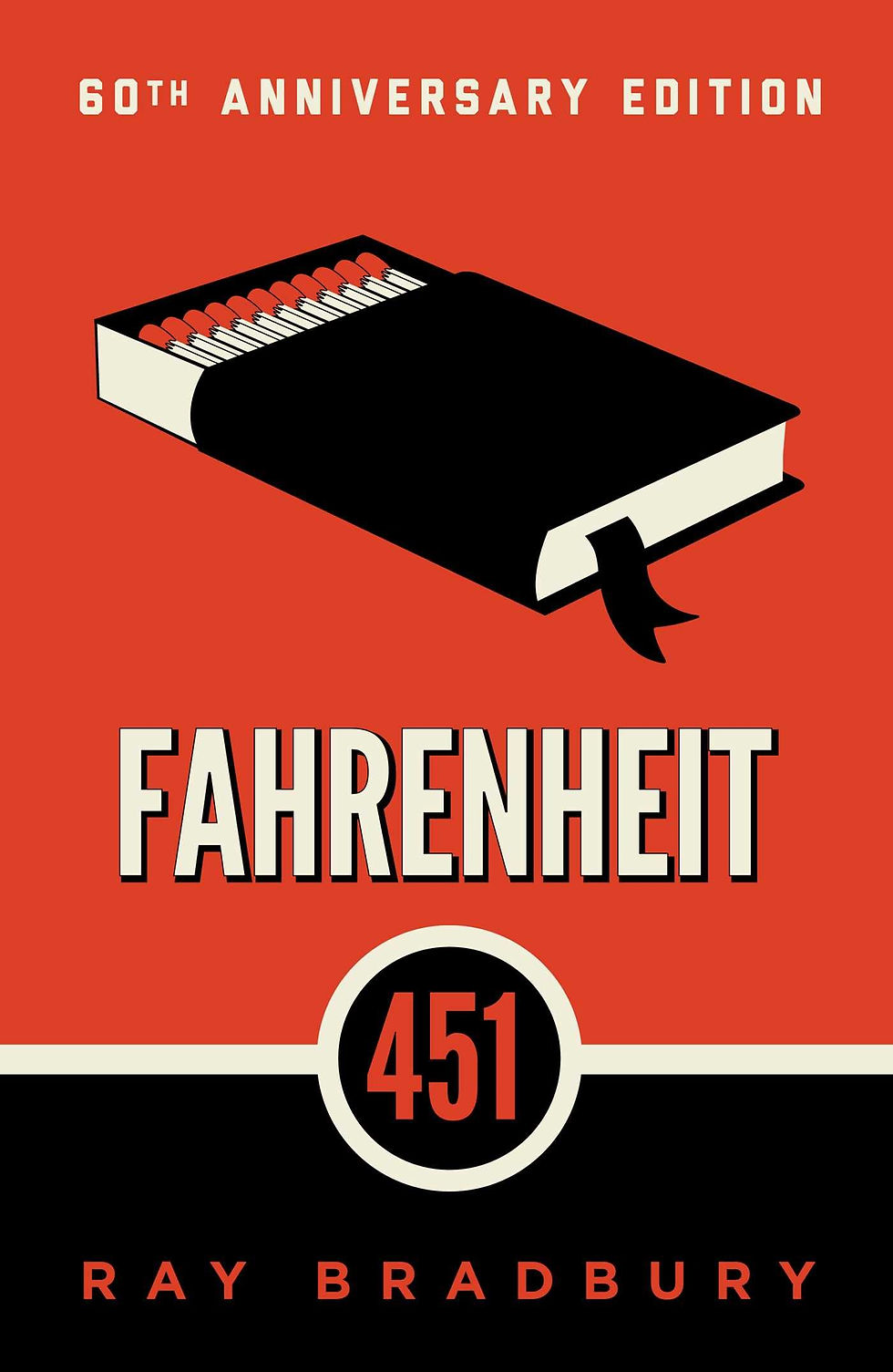
Often we students, looking at the list of books to be read in the upcoming semester, were indignant: Why so much writing! After all, we have been repeating the same truths for centuries! They write, they write, and we read!
The other day I had an opportunity to be convinced that a world without many books is a lifeless world. I read (I was going to for a long time) the novel by R. Bradbury, "Fahrenheit 451°". The book is old, even a classic (back in 1953), but it has been republished. And just in time - because the fantasy world depicted there is very similar to our current reality, maybe not literally: the deadly electric dogs are not yet chasing the last fans of rustling the pages, but...
Ray Douglas Bradbury, American novelist, short story writer, essayist, playwright, screenwriter and poet, was born August 22, 1920 in Waukegan, Illinois. He graduated from a Los Angeles high school in 1938. Although his formal education ended there, he became a "student of life," selling newspapers on L.A. street corners from 1938 to 1942, spending his nights in the public library and his days at the typewriter. He became a full-time writer in 1943, and contributed numerous short stories to periodicals before publishing a collection of them, Dark Carnival, in 1947.
The hero of the novel, Guy Montag, is a firefighter by profession, but he does not put out fires, but instead ruthlessly and even with pleasure burns books. Not out of malice, but for people's peace of mind: it is more convenient for them to live by having fun, not to think about anything ("as much sport, games, amusement as possible - let a man always be in the crowd, then he does not have to think" - that is the logic of the state). Books, on the other hand, worry, pose questions.
How did mankind get to this point? According to one of the characters, mass consumption is to blame: with the increasing pace of life, people have completely stopped reading, at first preferring short paraphrases, excerpts - no more is needed to create an intellectual "alibi" for themselves, and then they turned into doll-like zombies, easily controlled by 24-hour TV shows.
And yet one day Montag doubts his artificial happiness and tries to discover the mystery of books: after all, something is found in them by those rare weirdos who are ready even to burn alive with those bound stacks of paper. He begins to read into the books secretly preserved from the fire - no result, no meaning! Like sand through a sieve. But Montag does not give up his quest, he is already drawn into the dangerous chain of the forbidden - and his life is transformed.
So, in my opinion, Bradbury shows very subtly the right attitude toward books: it's not even about what to read, how much to read-it's not about the book, whether it's bad or good, the object of worship or hatred. What is valuable is the inner work that the book makes us do. A lot of sand will flow through the sieve, but the most important things will remain.
So, to the sieve, to the work!
This article was sponsored by Suhaib Elwan
Bình luận